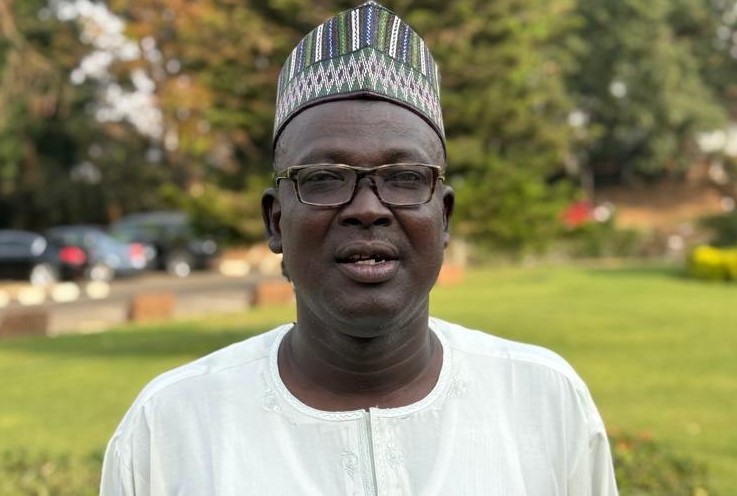In the matter of choosing a running mate, PMB demonstrated an acute sensitivity to the religious diversity of Nigeria. Despite intense pressure, he refused to pick a fellow Muslim as his running mate, understanding the fragile balance between the Muslim North and Christian South. His choice of Professor Yemi Osinbajo, a southern Christian, promoted a sense of unity and national accommodation. In stark contrast, PBAT’s choice of Kashim Shettima — a fellow Muslim — as his running mate exhibited a deep insensitivity and disregard for the feelings of Christian Nigerians. This decision has sharply polarized the country, pushing Nigeria further into a dangerous bipolar reality.
When constituting his government, President Buhari was visibly mindful of fairness and national inclusion. Though a northerner, he deliberately ensured that critical ministries like Finance, Works, Housing, Power, Communications, and Transportation were headed by competent southerners. Even the Federal Inland Revenue Service (FIRS) was entrusted to southern hands. PBAT, on the other hand, has shown little concern for balance, stacking these same vital ministries with southerners, many of them his close associates and kinsmen. His appointments have left the North feeling alienated and further deepened the sense of exclusion.
In governance style, PMB was cautious to respect the office of the Vice President. Whenever he had to travel, whether for work or medical reasons, he formally handed over to Professor Osinbajo, ensuring continuity of governance and respecting constitutional processes. PBAT, however, seems to have sidelined his vice president entirely. Despite several trips abroad, some for medical reasons, he has not once formally handed over power. Instead, he appears to empower his aides to act in his absence, a move that fuels widespread speculation and undermines the spirit of constitutionalism.
Moreover, Buhari, whenever traveling for medical attention, always informed the National Assembly in writing and declared his whereabouts to Nigerians. Transparency, even if imperfect, was part of his style. PBAT has abandoned even this courtesy. His travels, particularly for medical reasons, are shrouded in secrecy, leaving Nigerians to rely on conjecture and rumor, while governance hangs in a fog of uncertainty.
When it comes to family involvement in state affairs, PMB kept a cautious distance. His son, Yusuf Buhari, was never officially involved in government functions or decision-making. PBAT, however, has allowed his son, Seyi Tinubu, to openly launch an unconstitutional “Office of the First Son,” attend Federal Executive Council meetings, and tour states to promote government programs. This blatant nepotism not only breaches constitutional norms but also sends a damaging message about governance as a family enterprise.
PMB’s tenure, for all its shortcomings, was largely seen as an attempt to promote constitutionalism and respect for the rule of law. He liked working with honest, frank individuals who could challenge him and advise him candidly. In contrast, PBAT is widely perceived by the population as a proponent of state capture — systematically weakening institutions and empowering personal loyalists to dominate the machinery of the state. His preference for cons, clowns, and sycophants over serious-minded professionals is proving to be a monumental downside for effective decision-making and governance. It is eroding public confidence, breeding confusion, and imperiling the future stability of Nigeria.
Under Buhari, even with the frustrations that built up over time, many Nigerians still believed, especially in the early years, that he meant well and was personally incorruptible. That belief, whether right or wrong, gave his government a kind of moral credit among ordinary people.
Tinubu, on the other hand, entered office carrying a heavy load of public distrust from day one, shaped by long-standing perceptions of political deals and personal interests. His open association with figures like Gilbert Chagoury, an alleged money launderer now involved in handling the Lagos-Calabar Coastal Highway project — the single most expensive project of his administration — has only deepened that distrust. Even more worrying to many is the fact that Seyi Tinubu, the President’s son, is reportedly on the board of Hitech Construction, the company awarded the contract.
Looking at the key players around him such as GoodwillAkpabio, Nyesom Wike, and Abdullahi Umar Ganduje, the APC Chairman, it becomes even clearer why many feel Tinubu’s style of governance is more about rewarding loyalists than building a government based on merit and national interest. Two years in, the trust gap has grown even wider, making it harder for his policies, even when well-intentioned, to win the support of the people.
Lastly, PMB tried, at least superficially, to appoint professionals into ministries that matched their expertise — such as Lai Mohammed in Information and Hadi Sirika in Aviation. Under PBAT, ministry appointments have become puzzling mismatches: Mohammed Idris Malagi struggles to find footing in the Information Ministry, while Festus Keyamo, a lawyer, is stranded in the Aviation Ministry, more fitting the role of a liaison officer than a serious policy driver. The mismatch has led to operational confusion and uninspired leadership.
In closing, Nigerians must brace up and remain resolute in the face of the growing anomalies being normalized under the current administration. Political merchants must not be allowed to auction our national destiny. The road ahead demands vigilance, civic organization, and a firm commitment to reclaim our country through the democratic power of the ballot. We must be ready — organized, informed, and determined — to recover Nigeria from the hands of those who see governance as a personal business. The time to prepare is now. History is waiting.









